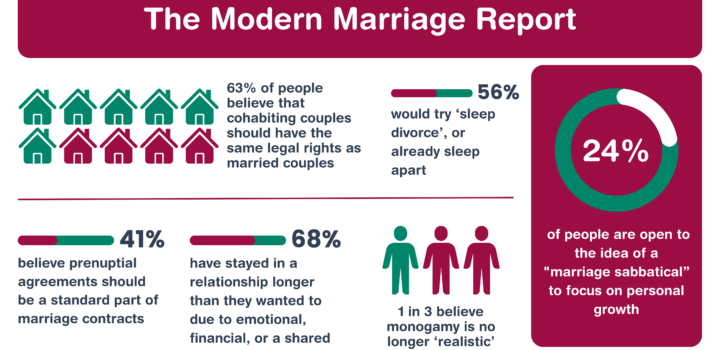There has been a significant increase in cohabiting couples in recent years, which has shone light on the outdated cohabitation laws in the United Kingdom. There are more than 3.6 million cohabiting couples in the UK; the fastest growing type of family. Many cohabiting couples still rely on the myth of a ‘common law marriage’ to protect them in the event of a relationship breakdown. Unfortunately, there is no such thing and lack of protection for cohabiting couples leave many financially vulnerable.
Under the current law, cohabitees have limited rights compared to those who are married. When married couples divorce, they have significant legal protection within the family law framework. The parties’ and children’s needs are prioritised and the principles of equality and fairness are applied. If a spouse were to pass away, then the living spouse has automatic rights to inheritance, pension and insurance, among others.
For cohabiting couples, these principles unfortunately do not apply. This specifically leaves the financially weaker party in a vulnerable position in the event of a break-up. Often this is women who have focussed less on their career in order to look after children. Cohabiting couples cannot rely on the family law framework and have no financial responsibility to one another on separation. If one party wishes to make a financial claim against the other then they may only do so under property law (Trusts of Land and Appointment of Trustees Act 1996) or under Schedule 1 of the Children Act 1989 if the provision sought is for the benefit of a child. Unmarried parents are still able to seek child maintenance through the Child Maintenance Service for children under the age of 16 or under 20 if they are still in full-time education.
Law reform to support cohabitating couples
Not surprisingly, there have been many proposals for law reform in this area. The Law Commission first published a report in July 2007 which recommended a new scheme for financial relief on separation. The government took no action to implement these recommendations. The Law Commission published a further report in 2011 recommending some unmarried partners to have a right to inherit under the intestacy rules. Again, this was not implemented.
More recently, the House of Commons Women and Equalities Committee published a report on 4 August 2022 recommending reform of the law “to better protect cohabiting couples and their children from financial hardship in the event of separation”. Disappointingly, in November 2022, the government rejected the Committee’s calls to implement the 2007 and 2011 Law Commission recommendations and stated that focus must remain on improving the law of marriage and divorce before changes to the law of cohabitees could be considered.
The future
There will continue to be pressure placed on the government for this much needed reform by family lawyers and other professionals in this field. Until changes are made, public awareness must be raised for cohabiting couples so they know their rights when making key financial decisions for their family and their children.
There are certain steps that cohabiting couples can take to help protect themselves:
1. If couples are purchasing a property together, make sure it is legally owned in a way that reflects the parties’ intentions
2. Enter into a cohabitation agreement dealing with the parties’ intentions regarding joint property, finances and arrangements for children
3. Ensure wills are up-to-date
At Rayden Solicitors, we can advise on cohabitation agreements and ways in which parties can protect themselves. Please do not hesitate to contact us to discuss this further.
















